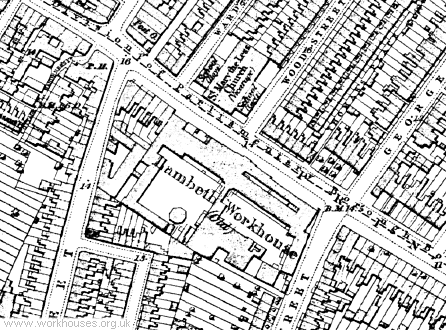
Today we move south of the river and up to Woolwich, home of the Arsenal (the ordnance factory that is, it would be another three years until the football club of that name was founded). Henry Rollings, a tramcar conductor, was charged at the Woolwich Police Court ‘for neglecting to deposit an article of lost property within 24 hours’.
The charge was brought by a tramway inspector, a Mr Naudi, and he appeared in court to press the case while Rollings was supported by a number of people who spoke up for him as being an honest man.
On the 18th January 1883 Agnes Brookes was riding on Rollings’ tram as she often did. Rollings knew her well but not well enough to know where she lived. When Agnes got off to her rooms in Thomas Street, Plumstead, she was upset to discover that she had lost her brooch. It must have fallen off as she traveled on the tramcar, and thinking this she later applied to the Woolwich and Greenwich tramcar company’s office to see if anyone had found it.
She was in luck. The clerk told her that it had been handed in and sent to Scotland Yard, as was their standard procedure. The brooch had been found by another passenger, Eliza Payne, who gave it to the conductor, Rollings. However, Rollings thought he recognised it as belonging to Agnes and so hoped to be able to return it in person, rather than simply sending it off to lost property as he was supposed to. He told Eliza this and she believed him.
So how did this case of lost property end up before Mr Balguy, the Woolwich Police magistrate?
Well it seems that when Miss Brooks first went to the office to enquire about her missing brooch Rollings hadn’t told anyone he’d got it, nor did he say that he knew her. It was only when he heard she was looking for it that he handed it over at the office. This was the story that Mr Nuadi told at least, and it placed Rollings in a difficult position. He was effectively being accused of keeping the jewellery for himself and only owning to finding it when forced to.
A police inspector explained that the tramway inspector had deposited the brooch with him on Sunday morning (three days after Agnes lost it) and Rollings turned up a few hours later to sign the record sheet. The brooch was then sent on to Scotland Yard to wait for its owner to claim it.
Luckily for the conductor the magistrate chose to believe his version of events. The man had acted foolishly, but not criminally and he doubted Mr Nuadi’s testimony. In fact he said that the tramway inspector was ‘famous for his incredulity in the honesty of people’. Rollings would have been liable to a penalty of £10 or even a term of imprisonment but he would only impose a fine of 10s on this occasion.
The traffic manager (possibly Rollings’ boss) was in court and Mr Balguy hoped that this incident and his appearance in court would not cost the conductor his job. No, said Mr Huddlestone, it would not. Rollings was, in his view, a ‘perfectly honest’ man. Which seems like the sensible outcome. Agnes got her brooch back, Rollings was fined but kept his job, and the tram company protected their reputation as a safe means of transport in public.
[from The Standard, Wednesday, January 31, 1883]
You can use this site to search for specific crimes or use the Themes link in the menu on the left to look for areas or topics that interest you. If you are interested in a particular court (such as Bow Street or Marylebone) you can also limit your search to one court in particular. Please feel free to comment on anything you read and if something in particular interests you then please get in touch. You can email me at drew.gray@northampton.ac.uk



 1883 was the year that the Edison & Swan Electric Light Company was founded in London and Sunderland but Wyatt may have worked for a lesser known firm. Edison bulbs (like the one in this advertisement from 1901) have become fashionable again today – they must have seemed like ‘magic’ for our Victorian ancestors.
1883 was the year that the Edison & Swan Electric Light Company was founded in London and Sunderland but Wyatt may have worked for a lesser known firm. Edison bulbs (like the one in this advertisement from 1901) have become fashionable again today – they must have seemed like ‘magic’ for our Victorian ancestors.



